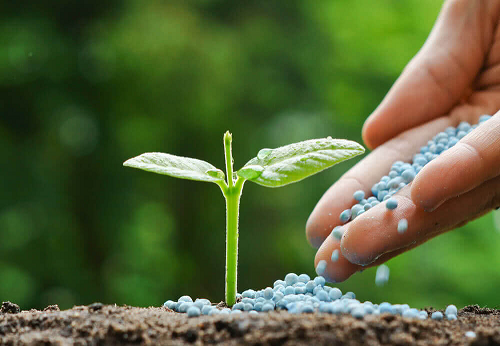
Fertiliser shortage requires innovation
Reports on the world market about fertiliser price hike must be a source of worry and a disturbing development for us as a country.
This is particularly so because Ghana relies 100 per cent on imported fertiliser and a hike in the global prices, therefore, has a direct effect on us as a country.
Currently, a tonne of urea, which was sold at $300 at the beginning of the 2021 cropping season, now goes for over $900, signifying over 300 per cent increase.
Since the introduction of the flagship agricultural policy Planting for Food and Jobs, subsidised fertiliser has played a significant role in contributing to the increase in production, leading to food security and sufficiency.
Until the introduction of the flagship programme, fertiliser usage in Ghana was as low as eight kilogramme (kg) per hectare, compared to the current 28 kg per hectare, which, though significant, is still not up to the recommended global usage of 130kg per hectare.
Countries such as China and other Asian countries currently stand at 300 kg per hectare.
With the significant improvement in fertiliser usage in Ghana, the current development calls for innovative ways to address the imminent food shortage in the country.
Explanations given for the sharp increase in the fertiliser prices vary, but all figures point to the devastation effect of COVID-19 and extreme weather conditions which led to higher demand for natural gas, which is the raw material for the production of fertiliser.
It is in the light of this that the Daily Graphic urges the Ministry of Food and Agriculture, through its extension officers, to help farmers with modern agronomic practices to reduce the severe impact the situation may potentially have on production.
Consequently, the extension officers should propagate the production and use of organic fertiliser as a stop gap measure while hoping for a change in the unfolding events on the global market.
We also suggest that with this imminent shortage of fertiliser, the Ministry should make available enough improved seeds on the market while the extension officers encourage farmers to patronise these improved seeds for better yields instead of the continuous use of traditional seeds.
The implications of this development are clear that there will be a significant reduction of food production in the country that can trigger food shortage.
We advise the Ministry of Food and Agriculture to ban the exportation of food items from now till the second quarter of 2022 to avert hunger.
China and Russia have done it on fertiliser to support their farmers and citizens. We should not continue to open our gates widely in the name of ECOWAS free trade. There must be some limits.
The Daily Graphic further calls on Parliament to speed up the passage of the Grains Development Authority Act to be laid before it in the first quarter of 2022.
This will ensure that farmers who wish to sell their grains get good price while the grains are released onto the market later.
The Grains Development Authority will compete favourably with the foreign buyers to retain food items produced in the country by our hardworking farmers.
While all these areas are being considered, it is important that the government looks at the possibility of attracting foreign investors for the possible production of the commodity locally, especially with the abundance of natural gas in the country.
Fortunately, we are blessed with the availability of natural gas, the shortage for which manufacturing companies in the West are shutting down their plants.
The Daily Graphic is aware of the capital-intensive nature of such a venture and it behoves government to scout for potential investors with deep pockets to invest in the project.
It is only when fertiliser is produced locally that we can guarantee price control and adequate supply to our farmers to ensure food sufficiency and food security.
Until then, food security and food sufficiency cannot be totally guaranteed.
